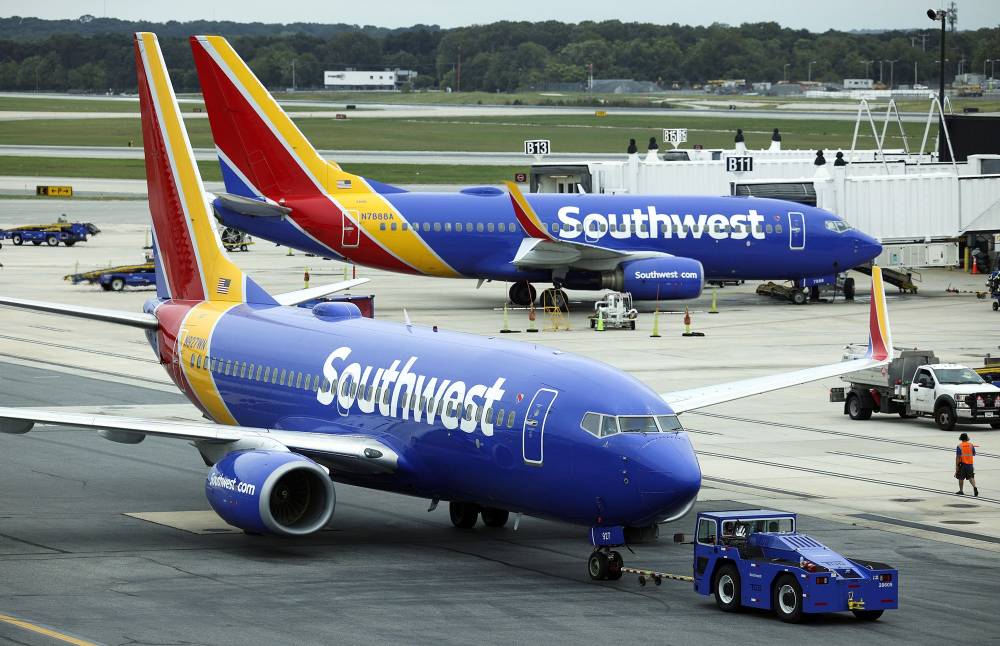- Airlines utilize a fee-centric model, with varied charges for services like checked bags, and some offering perks like free Wi-Fi.
- Southwest Airlines maintains a distinct approach, avoiding baggage fees but revising Wi-Fi charges.
- The divergent methods of providing Wi-Fi amongst airlines, with some offering it freely, bring different customer experiences.
An In-depth Exploration into the Airlines' Fee Models and Wi-Fi Provision
LONG ISLAND CITY — The prevailing business model across the airline industry heavily leans into fees, albeit with distinct methodologies amongst various carriers. Notably, the majority of airlines, excluding Southwest Airlines, impose additional charges for checked bags on fundamental fare levels.
In a different vein, airlines such as JetBlue, American, and United Airlines opt for a tiered fare structure. Through this, "Basic Economy" guarantees mere boarding, while upper-level fare tiers confer additional perks like seat assignments and baggage allowances. This tiering system essentially introduces additional fees under the guise of varied ticket levels, typically providing a cost-effective alternative to selecting and purchasing perks separately.
Contrastingly, Southwest Airlines adheres to a policy of no baggage fees across all ticket levels, presenting a significant saving for passengers. Despite this seemingly passenger-friendly approach, it doesn’t consistently prompt its competitors to emulate such practices.
One notable complimentary perk JetBlue has championed for nearly a decade is the provision of free Wi-Fi, with Delta Airlines also jumping on the bandwagon and committing to extend the service across all domestic flights by year's end, with international adaptations by the end of 2024. This action, led by a second airline, could potentially catalyze other major carriers like American, United, and Southwest to similarly offer complimentary Wi-Fi.
In 2019, United Airlines voiced aspirations during an earnings call to elevate its technological capabilities to a point that would enable the provision of free Wi-Fi. Fast forward to approximately four years later, the airline has been observed trialing complimentary internet services on specific flights. Should United finalize this move, it’s conceivable that other significant non-discount airlines may contemplate the incorporation of complimentary Wi-Fi.
Interestingly, American Airlines has reportedly secured sufficient bandwidth, yet implements the highest charges for it amongst its industry counterparts. Despite heralding free in-flight messaging during their Media Day in 2017, the carrier subtly withdrew this offering, as noted by Gary Leff from View From the Wing.
Even Southwest Airlines, despite marketing itself as the airline sans numerous hidden fees, has demonstrated that this ethos does not extend to its Wi-Fi service. The earlier part of this year saw the airline subtly shift its charges from $8 for internet covering all flight segments to $8 per flight segment. The adjustment signifies that passengers, especially those navigating through connecting flights, incur multiple Wi-Fi charges to maintain connectivity.
Southwest rationalized its shift by stating, "In addition to upgrading our current fleet equipped with our legacy provider, Anuvu, we’re introducing an additional internet provider, Viasat, which will provide Wi-Fi hardware on new aircraft in early March. With two vendors providing connectivity in our fleet, we’re introducing a new pricing model for onboard internet." Nonetheless, it’s worth noting that Southwest still offers free text messaging and a selection of complimentary live television channels to its passengers.
In a different vein, airlines such as JetBlue, American, and United Airlines opt for a tiered fare structure. Through this, "Basic Economy" guarantees mere boarding, while upper-level fare tiers confer additional perks like seat assignments and baggage allowances. This tiering system essentially introduces additional fees under the guise of varied ticket levels, typically providing a cost-effective alternative to selecting and purchasing perks separately.
Contrastingly, Southwest Airlines adheres to a policy of no baggage fees across all ticket levels, presenting a significant saving for passengers. Despite this seemingly passenger-friendly approach, it doesn’t consistently prompt its competitors to emulate such practices.
One notable complimentary perk JetBlue has championed for nearly a decade is the provision of free Wi-Fi, with Delta Airlines also jumping on the bandwagon and committing to extend the service across all domestic flights by year's end, with international adaptations by the end of 2024. This action, led by a second airline, could potentially catalyze other major carriers like American, United, and Southwest to similarly offer complimentary Wi-Fi.
In 2019, United Airlines voiced aspirations during an earnings call to elevate its technological capabilities to a point that would enable the provision of free Wi-Fi. Fast forward to approximately four years later, the airline has been observed trialing complimentary internet services on specific flights. Should United finalize this move, it’s conceivable that other significant non-discount airlines may contemplate the incorporation of complimentary Wi-Fi.
Interestingly, American Airlines has reportedly secured sufficient bandwidth, yet implements the highest charges for it amongst its industry counterparts. Despite heralding free in-flight messaging during their Media Day in 2017, the carrier subtly withdrew this offering, as noted by Gary Leff from View From the Wing.
Even Southwest Airlines, despite marketing itself as the airline sans numerous hidden fees, has demonstrated that this ethos does not extend to its Wi-Fi service. The earlier part of this year saw the airline subtly shift its charges from $8 for internet covering all flight segments to $8 per flight segment. The adjustment signifies that passengers, especially those navigating through connecting flights, incur multiple Wi-Fi charges to maintain connectivity.
Southwest rationalized its shift by stating, "In addition to upgrading our current fleet equipped with our legacy provider, Anuvu, we’re introducing an additional internet provider, Viasat, which will provide Wi-Fi hardware on new aircraft in early March. With two vendors providing connectivity in our fleet, we’re introducing a new pricing model for onboard internet." Nonetheless, it’s worth noting that Southwest still offers free text messaging and a selection of complimentary live television channels to its passengers.

